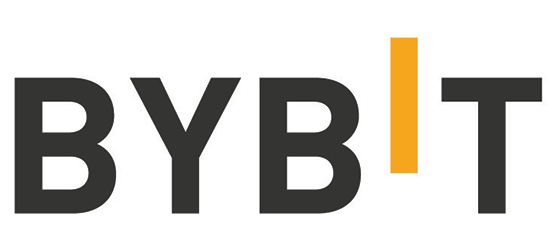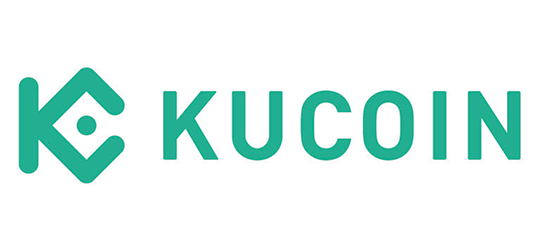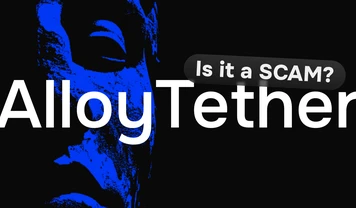
Bitcoin vs. Ethereum: What's the Difference?
This article will help to settle the Ethereum vs Bitcoin debate by exploring the differences between the two cryptocurrencies. By understanding what Bitcoin and Ethereum networks have to offer, you can determine the best one for your needs.
The Bitcoin and Ethereum networks have often been compared. While they both fall under the category of decentralized, open-source protocols based on blockchain technology, there are key differences between them that make each unique. Bitcoin, for example, is the oldest blockchain network and operates as a digital currency, while the Ethereum network focuses on powering smart contracts and decentralized applications (dApps). Bitcoin and Ethereum are the two most promising and widely used blockchain networks in the world.
This article will help to settle the Ethereum vs Bitcoin debate by exploring the differences between the two cryptocurrencies. Whether you're an investor, a crypto enthusiast, or just curious about blockchain technology, this comparison will help you gain a better understanding of the two networks. By understanding what Bitcoin and Ethereum networks have to offer, you can determine the best one for your needs.
Bitcoin vs. Ethereum: Short Overview
Bitcoin
Bitcoin was anonymously created by an entity by the name of 'Satoshi Nakamoto' in 2009. It is the world's first and most popular cryptocurrency, meant to serve as a secure, digital form of payment. Bitcoin uses blockchain technology to store transactions on a distributed ledger that is secured by powerful cryptography. This system eliminates the need for financial intermediaries, such as banks and payment processors.
Ethereum
Ethereum was created by Vitalik Buterin in 2015. Instead of being used as a form of digital money, Ethereum functions as an open-source platform that allows developers to build and run smart contracts and decentralized applications (dApps). The Ethereum network uses its own cryptocurrency, Ether, to power these transactions.
Key Differences
Mining
When it comes to mining, only Bitcoin can be mined. Mining involves the process of verifying and adding transactions to the blockchain ledger. In return for their work, miners are rewarded with newly-created Bitcoin. ASICs are now the only profitable way to mine Bitcoin. These are specially designed computers that are built specifically for mining Bitcoin. These miners compete to solve a complex cryptographic puzzle to verify a block of transactions.
As the halving approaches (when the reward for mining a block is cut in half), the competition has become more intense and only the most efficient machines connected to low-cost energy sources can compete. Mining pools can be joined by smaller miners to increase the chances of earning a reward. These essentially pool together the resources of multiple miners to increase the chances of creating a block. Together, they share the reward and provide a more predictable income.
With a hard cap of 21 million Bitcoin, it is estimated that all Bitcoin tokens will be mined by the year 2140. This creates deflationary pressure on the price of Bitcoin and the energy expenditure required to produce the asset is one of the reasons why the digital currency is of value.
Ethereum, on the other hand, has recently moved away from a mining model and now uses a proof-of-stake system. This means that miners are no longer rewarded with newly-created Ether, but instead earn fees from verifying transactions on the network.
Although Ethereum was once a mineable cryptocurrency with an inflationary result, the network's move towards a more energy-efficient staking model has created a deflationary model. This means that, unlike Bitcoin, Ethereum’s supply will be slowly depleted over time. If the network continues to grow, this could lead to an increase in the value of Ether tokens.
- Bitcoin Can Be Mined.
- Ethereum Cannot Be Mined.
Fees
Another key difference between Bitcoin and Ethereum is the fees. When sending a Bitcoin transaction, users must include a fee to incentivize miners to process their transactions faster. With Ethereum, the cost of conducting transactions is based on the gas limit and gas price set for each transaction.
The gas limit is the maximum amount of units of gas that can be used for a transaction, while the gas price is the amount of Ether that must be paid per unit of gas. This model is designed to ensure that miners are compensated for their work and it also helps to prevent spam transactions from clogging up the network.
The cost of a transaction on Ethereum is typically much lower than Bitcoin, as Ethereum has an upper limit on the amount of gas that can be used in a single transaction. This makes Ethereum more cost-effective for smaller transactions. However, with developments on the Bitcoin blockchain such as the Lightning Network, fees for Bitcoin transactions could become much lower in the future. The same can be said for Ethereum as developers continue to upgrade the network.
- Ethereum Uses Gas Limit/Gas Price Model.
- Bitcoin Uses a Fee to Incentivize Miners.
Time
The processing speed of Bitcoin and Ethereum transactions is also very different. Bitcoin’s block time (the amount of time it takes to mine a new block) is approx. 10 minutes, while Ethereum’s is just around 12 seconds. This means that Ethereum transactions are confirmed much faster than Bitcoin transactions. As a medium of exchange and a blockchain that can transfer monetary value, Bitcoin’s low transaction speed is one of its main shortcomings.
The Ethereum network could be beneficial for applications such as decentralized finance (DeFi), which require fast and secure transactions. However, the slower block time of Bitcoin has its advantages too. Since blocks are mined at a slower rate, it can be more difficult for attackers to carry out a 51% attack on the network. This is because the slower rate of block production means that it is more difficult to acquire the majority of computational power to control the network.
- Ethereum Is Faster But More Expensive.
- Bitcoin Is Slower but More Secure.
Purposes
These two blockchains serve different purposes. Bitcoin was created as a form of digital money, while Ethereum was developed to be a platform that enables developers to create decentralized applications (dApps) and smart contracts.
As more developers enter the space, Ethereum has become an important tool in the world of blockchain technology.
In recent years, Ethereum has emerged as a leader in the DeFi space, with a range of different projects launching on the network. This includes decentralized exchanges (DEXs), stablecoins, and other financial services that allow users to borrow, lend, and trade cryptocurrencies in a trustless manner.
With Ethereum no longer being backed by energy through a Proof-of-Work consensus model, many argue that Bitcoin is emerging as the superior form of 'Hard Money' as its value is directly linked to the energy required to produce it. This could make Bitcoin more attractive as a store of value in the long term, as its limited supply means that its value could increase over time.
- Bitcoin Is a Store of Value.
- Ethereum Facilitates dApps.
Hashing Algorithms
Bitcoin and Ethereum use different hashing algorithms. Bitcoin uses the SHA-256 algorithm, while Ethereum used Ethash and then later Keccak-256 when it was still a Proof-of-Work blockchain. Keccak-256 was designed to be ASIC-resistant, meaning that it could not be mined using specialized hardware. This made Ethereum arguably more decentralized than Bitcoin, as it prevented miners from being able to control large parts of the network.
With the move to a Proof-of-Stake consensus model, Ethereum no longer uses Ethash and is now secured by stakers. This means that the hashing algorithms used by Bitcoin and Ethereum are now very different, as Bitcoin is still primarily mined using ASICs whereas Ethereum is now secured through a staking model. Staking now moves the debate of which is more decentralized back toward Bitcoin's favor, but with a lower carbon footprint, ESG (environmental, social, and governance) investors now consider Ethereum to be favorable.
- Bitcoin Uses SHA-256.
- Ethereum Used Ethash/Keccak-256 (Now Uses Stake Model).
Proof of Work vs. Proof of Stake
To best summarize the differences between Bitcoin and Ethereum, it is important to understand that they are secured by different consensus protocols. Bitcoin is secured by Proof-of-Work (PoW), while Ethereum has moved to a more energy-efficient Proof-of-Stake (PoS) system. PoW is designed to incentivize miners to contribute computational power to mine blocks and receive rewards. PoS is designed to incentivize users to stake their Ether tokens to validate transactions and receive rewards.
These different consensus models have very different implications for the two networks. With Proof-of-Work, some disadvantages are the large amount of energy that is used to secure the network and the fact that it is becoming increasingly more difficult for small-scale miners to compete with large-scale miners.
With Proof-of-Stake, the main disadvantage is that it could be more centralized as those with larger stakes have the potential to earn more rewards. If however, bad actors manage to accumulate the majority of the stake, they could theoretically control the network. As the name implies, staking is not without its risks. Losing your stake could happen if your validator fails to detect malicious behavior.
Future and Conclusions
As Ethereum continues to upgrade its network and developers continue to experiment with new upgrades, it could potentially become a more cost-effective and faster platform than Bitcoin. Ethereum could also become a hub for decentralized applications that facilitate all sorts of financial services, which could make it even more attractive as an investment asset.
This smart contract platform has created a strong network effect that would make it difficult for new projects to enter the space and compete. With a strong network of dApps and familiarity, Ethereum could become the go-to platform for developers and blockchain users in the future.
At the same time, Bitcoin could emerge as a more attractive store of value due to its limited supply, making it attractive for long-term investors. As the Bitcoin network continues to upgrade, its transaction speeds could potentially become faster and fees could be reduced, making it more competitive with Ethereum.
Ordinals on the Bitcoin blockchains are a way for data to be inscribed into the smallest unit known as a Satoshi or SAT. This means that the Bitcoin blockchain is evolving to become a data-sharing platform and could potentially be used for a variety of applications.
Overall, the future of both Ethereum and Bitcoin is still uncertain as both projects continue to upgrade their networks. Regulation is also unclear but as of the time of writing, Bitcoin is being labeled as a form of property while Ethereum serves as a security. This can have implications when it comes to investing. Either way, large whale investors both from hedge funds and venture capitals are looking to invest in blockchain technology.
FAQ
Is Bitcoin better than Ethereum?
It depends on one's goals and needs. Bitcoin is better than Ethereum if one is looking for a long-term store of value, as its limited supply could make it more attractive over time. Both networks are highly secure, but they utilize different consensus models and are used for different purposes.
Is Ethereum better than Bitcoin?
Ethereum is better than Bitcoin if dApps and more complicated smart contracts are required. This is because Ethereum offers a more comprehensive programming language than Bitcoin’s scripting language, allowing for the development of more complex contracts and applications.
Why Is Bitcoin Compared With Digital Gold and Ethereum to Digital Silver?
Bitcoin is compared to digital gold because of its limited supply which makes it attractive as a store of value in the long term. Ethereum is compared to digital silver because, like the commodity, it is not as scarce as gold, but still has a significant value.
What Are Some Similarities Between Bitcoin and Ether?
Both Bitcoin and Ethereum are decentralized networks secured by cryptography. They both utilize a distributed ledger to securely store and record transactions, as well as provide users with the ability to transfer funds without the need for intermediaries.






























